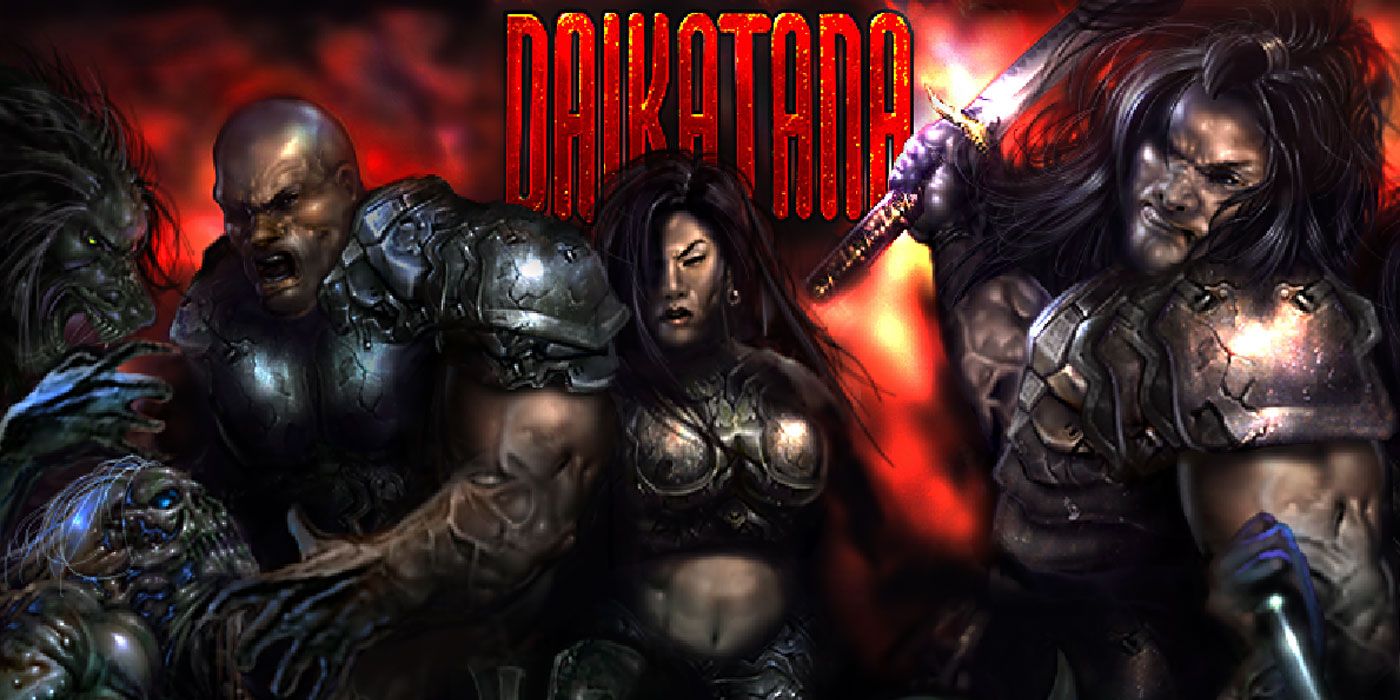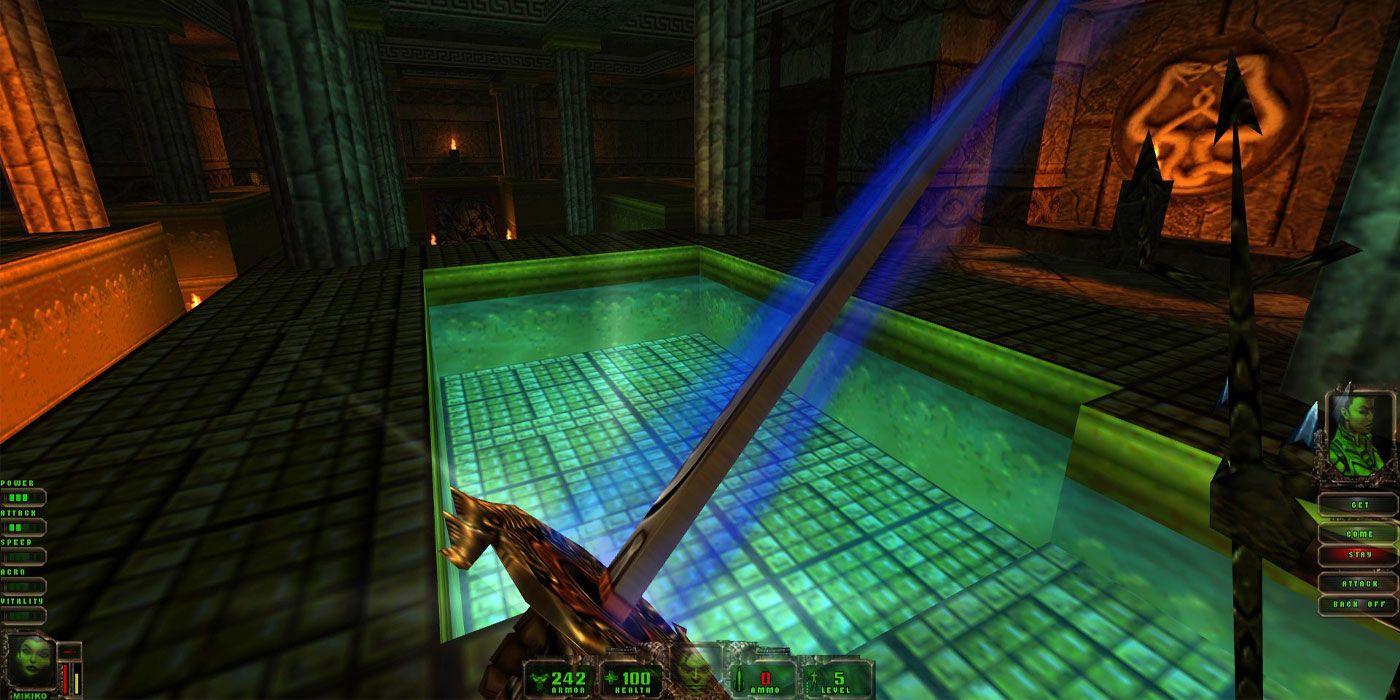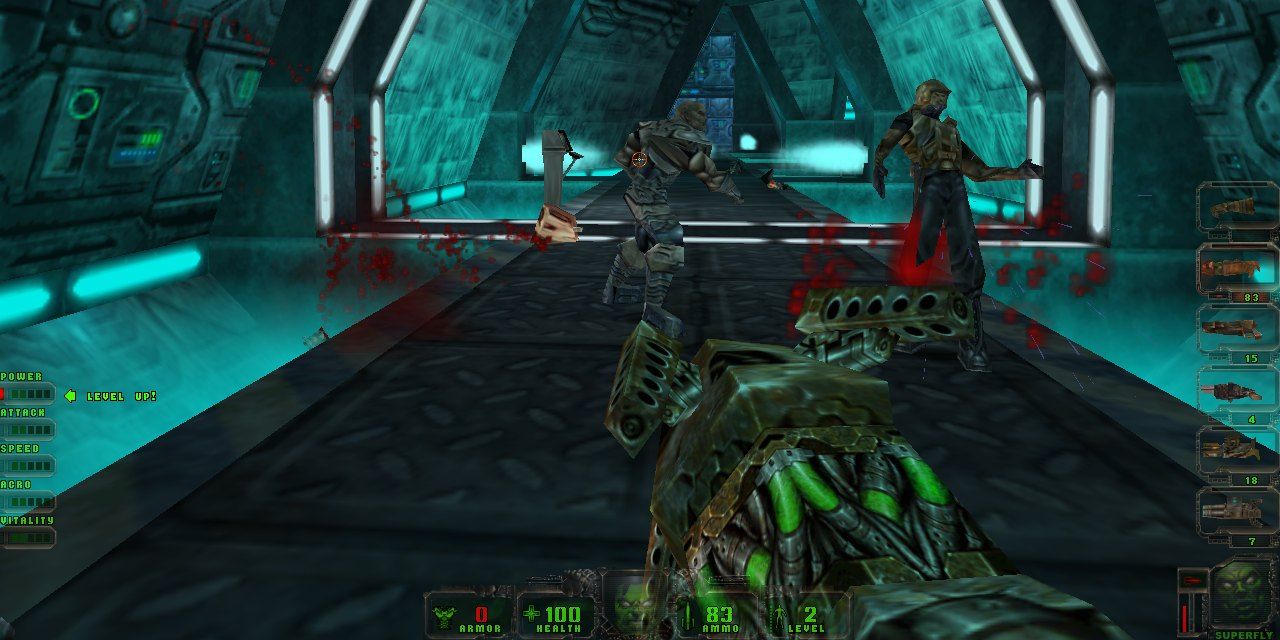John Romero is an undisputed legend in the video game industry. Romero is well known for his work on Wolfenstein 3D, the DOOM series and Quake during his time with id Software, a company that he co-founded with John Carmack, Adrian Carmack and Tom Hall. Despite the immense success of the original Quake, it would prove to be Romero's last project at the studio he co-founded.
After Quake shipped, Romero founded his own game studio in Texas alongside Tom Hall - Ion Storm. Frustrated with his inability to pursue his initial vision when directing Quake, Romero set out to produce games unrestrained by mandates from publishers or other higher-ups. Quake was initially conceived as a story-driven action game featuring RPG elements, and Romero opted to pursue some of this original vision with his studio's first title, Daikatana, a game that would prove to be nothing short of a disaster.
Initial development on Daikatana began somewhat smoothly. Romero was always more interested in game design than working on technology and he felt it better to license other studio's game engines rather than create his own, so it was decided that Ion Storm would license the Quake engine from id. As Romero knew this engine well it seemed to be a natural choice for this new release. Problems quickly arose, however - this new title needed to impress to prove that Romero could thrive outside of id, and the original Quake engine was fast becoming outdated.
Romero decided that progress on the game would need to be scrapped, and a new, more modern engine would be needed. id Software released Quake II in 1997, the year of Daikatana's initial release date, and the game ran on a brand new id Tech engine. Romero and his team started from scratch using the Quake II engine, which proved to be far more difficult to use than the original Quake engine that Romero was proficient in.
Daikatana was incredibly ambitious. The title would focus heavily on the story that most id Software shooters opted to minimize entirely, and the plot would send protagonist Hiro Miyamoto to different time periods each with their own architecture, enemies and weapon sets. The combination of the sheer amount of work that would be required to achieve Romero's lofty ambitions and the struggle of wrangling a brand new engine that the team was unfamiliar with would ultimately take a toll on the project.
The title would be delayed several more times, and many staff would publically leave Ion Storm during the years that followed. Daikatana seemed to be going the way of Duke Nukem Forever for a time, with the game's release date a series of ever-moving goalposts. Daikatana needed to be a hit, and Romero enlisted some marketing executives to generate more interest and hype for the title's eventual release - a decision that would prove a fatal mistake.
It is nigh impossible to discuss Daikatana without mentioning its infamous ad campaign. The ad in question was a red poster featuring nothing but the phrase "John Romero's about to make you his bitch. Suck it down." This ad told players absolutely nothing about the game and banked entirely on being edgy and stirring up controversy. The ad was pitched to Romero as such by one of his marketing executives, and while he held reservations, Romero gave the green light to the ad. The marketing executive who pitched the ad was apparently fired, and Romero has since apologized profusely. Supposedly the intention was to reference his deathmatch smack talk, but the ad only ended up antagonizing would-be customers.
After years of delay, hype and marketing bluster Daikatana was finally released in 2000. The title ended up a rather average FPS with some glaring AI issues and confusing level layouts. Daikatana features AI allies that, if killed, will trigger a game over for the player. The allies would often become stuck on geometry, walk into danger or fall down pits for no reason, turning the game into a sort of eternal escort mission. Daikatana became remembered as one of the most notable disappointments in video game history, and Romero has since stated that it was a miracle the game was ever released at all.



